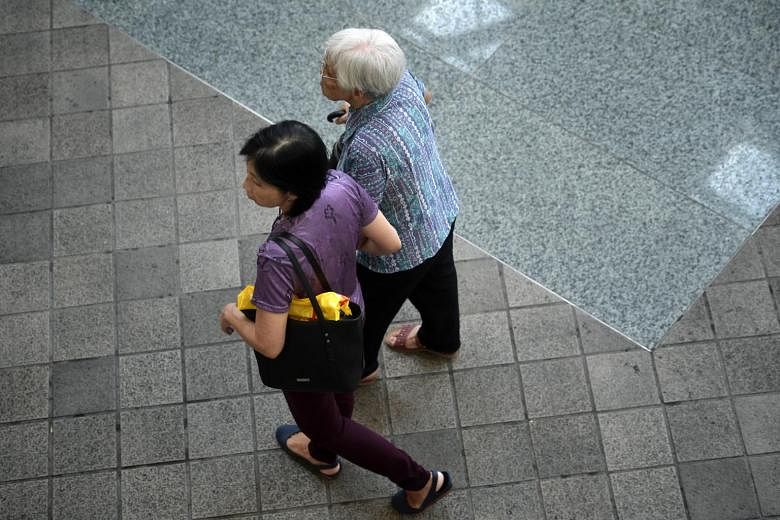Unpaid informal caregivers of older adults not only pay the lion's share of the mental, emotional, social and financial costs of care, they also pay non-trivial opportunity costs associated with care provision: lost wages, desired lifestyles, personal freedom and aspirations (Caregivers need to seek support to avoid burnout: Experts, Oct 19).
From a macroeconomic perspective, the costs and opportunity costs of unpaid informal caregiving are also substantial.
In Singapore, the number of regular caregivers was estimated to be over 210,000. While the total value of informal caregiving in Singapore is unavailable, the Ministry of Manpower's 2017 Comprehensive Labour Force Survey shows that about 12,500 resident caregivers cited caregiving to families or relatives as the main reason for leaving their job and not looking for a job from 2015 to 2017.
Think-tank Urban Institute highlighted that in the US, the economic cost of unpaid caregiving contributions was estimated to be US$67 billion (S$90 billion) last year, which by 2050, will likely double to US$132 billion to US$147 billion. Average opportunity cost per caregiver will likely increase by 8 per cent to 20 per cent.
Sadly, well-intentioned public education messages that remind caregivers to seek help often also carry this subtle, underlying and inadvertently unempathetic message to our unsung heroes: The person responsible for the care of your loved one and you, is you.
To nurture an inclusive society with rapidly growing numbers of older persons and informal caregivers, could we move from financial support to financial compensation and recognition of caregivers? For instance, a caregiver allowance compensates for the reduced employment income and pays for out-of-pocket caregiving expenses. Or how about a cash incentive held by disabled older persons that could be used by this person to support or even hire family members to provide informal care?
Such measures promote the independence of the older adults and facilitate ageing in place. They recognise the costs and opportunity costs paid by caregivers and send a strong signal that caregivers play an important social-economic role.
On a macroeconomic level, such measures are justifiable transfers from the national economic savings to informal caregivers who contributed to these savings.
I hope the relevant ministries would consider these suggestions.
Wayne Freeman Chong (Dr)

